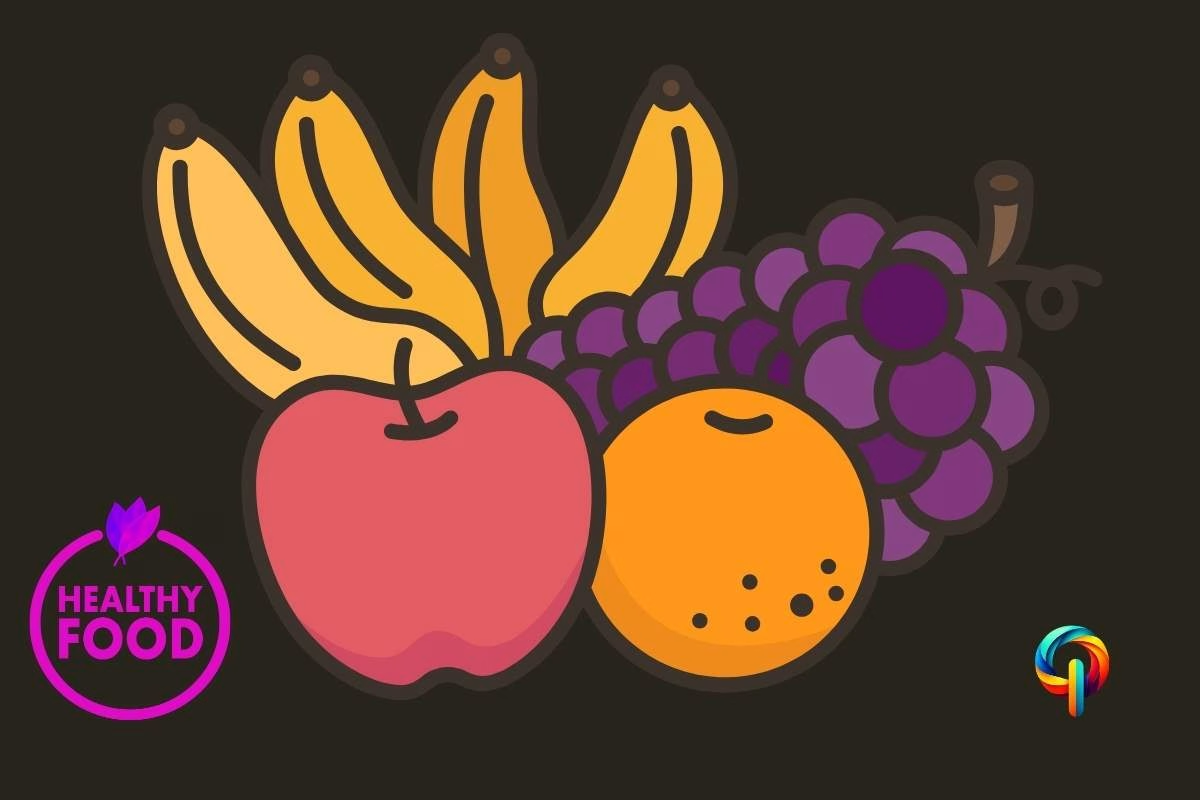
Imrul Qayes’s article, “Healthy Food, Happy Life,” champions the importance of nutrition for overall well-being. It defines healthy food, detailing the crucial roles of macronutrients, micronutrients, and fiber. The article explores the positive impacts of healthy eating on physical health, including immunity and weight management, and its contribution to mental well-being through increased energy and improved sleep. Furthermore, it discusses future trends in healthy eating, such as plant-based diets and personalized nutrition, highlighting the transformative power of mindful food choices. Finally, it offers practical advice and frequently asked questions to guide readers towards healthier eating habits.
Summary:Experience the sound
Document Tabs of Healthy Food, Happy Life
Hey there! Have you ever thought about how the food on your plate can shape your entire life? It’s true—what you eat doesn’t just fill your stomach; it fuels your body, mind, and soul. Healthy food is like the secret ingredient for living your best life.
Think about it—do you want to wake up feeling energetic, stay strong throughout the day, and keep those nasty colds and flu away? Then healthy food is your best friend. It’s not just about eating salads all day (although those are great too); it’s about making smart, delicious choices that give your body what it needs to thrive.
In this article, we’re diving into the amazing world of healthy food. We’ll talk about why it’s so important, the awesome benefits you’ll get, and simple ways to make it a regular part of your life. Ready to feel stronger, healthier, and happier? Let’s get started!
Ready To Create Something Extraordinary!
Your privacy is our priority—we never sell or share your information with anyone.
What is healthy food?
Healthy food isn’t just about eating greens or skipping desserts; it’s about making smarter choices that benefit your body and mind. At its core, healthy food refers to nutrient-dense, whole foods that are packed with essential vitamins, minerals, and energy. These foods work together to support your body’s daily functions, keep your immune system strong, and improve your overall health.
So, what falls under the “healthy food” category? Think of vibrant fruits, fresh vegetables, whole grains, lean proteins, and healthy fats. These foods are not just about keeping you full—they’re about fueling you to be your strongest, most energetic self.
Eating a nutritious diet doesn’t mean sacrificing taste. Instead, it’s about finding balance in your meals, ensuring you get a variety of nutrient-rich foods that help your body thrive.
Definition and Importance of Healthy Food
Healthy food is more than just fuel—it’s nourishment for your body and soul. By definition, healthy food includes whole, natural, and minimally processed ingredients that are rich in nutritional value. These foods deliver essential nutrients, including vitamins, minerals, antioxidants, and fiber, that your body needs to function properly.
Why does healthy food matter? It’s the foundation of your well-being. Eating a nutritious diet can help you maintain high energy levels throughout the day, fight off chronic diseases, and even boost your mental clarity. Imagine feeling light, active, and focused simply because of the food choices you make—it’s that powerful!
The health benefits of eating a balanced, nutrient-dense diet are endless. From reducing the risk of heart disease and diabetes to improving your mood, healthy food plays a huge role in helping you live a happier, more fulfilling life.
Key Components of a Healthy Diet
Building a healthy diet doesn’t have to be complicated. It’s all about balance and ensuring your body gets what it needs to stay healthy and strong. Here are the key components of a nutritious diet:
- Macronutrients (Carbohydrates, Proteins, and Fats):
- Carbohydrates: These are your body’s main source of energy. Choose whole grains like oats, quinoa, and brown rice for long-lasting fuel.
- Proteins: Lean proteins like chicken, fish, eggs, and plant-based options (like lentils or tofu) are essential for muscle repair and growth.
- Fats: Not all fats are bad! Healthy fats from sources like avocados, nuts, and olive oil are vital for brain health and energy.
- Micronutrients (Vitamins and Minerals):
- These nutrients may be needed in smaller amounts, but they’re crucial for maintaining good health. Think calcium for strong bones, iron for better oxygen flow, and vitamin C for a strong immune system.
- Fiber:
- Found in fruits, vegetables, and whole grains, fiber aids digestion, keeps you feeling full longer, and helps regulate blood sugar levels.
- Antioxidants:
- These are your body’s natural protectors, helping to fight off harmful free radicals and reducing inflammation. Load up on colorful fruits like berries, oranges, and leafy greens for an antioxidant boost.
Healthy food isn’t just a diet—it’s a lifestyle. By focusing on these key components and making smarter food choices, you can take control of your health, energy, and happiness. So, why wait? Start incorporating these elements into your daily meals and experience the transformation for yourself!
The Role of Healthy Food in Physical Health
Healthy food is like the engine oil your body needs to run smoothly. It provides essential nutrients that fuel your energy, support growth, and protect you from diseases. The role of healthy food in physical health is undeniable—it not only helps you feel good today but also sets the foundation for a longer, healthier life.
When you choose wholesome, nutrient-rich foods over processed junk, you’re giving your body what it needs to function at its best. From boosting immunity to helping you maintain a healthy weight, healthy food is the ultimate tool for taking charge of your physical health.
Boosting Immunity with Nutrient-Rich Foods
Did you know that your immune system depends on what’s on your plate? Foods packed with vitamins, minerals, and antioxidants can make your body a fortress against illnesses. For example:
- Vitamin C: Found in citrus fruits like oranges and lemons, vitamin C is a powerful antioxidant that strengthens your immune system and helps your body heal faster.
- Zinc: Nuts, seeds, and beans are excellent sources of zinc, a mineral that supports immune function and helps fight off infections.
- Superfoods: Leafy greens like spinach, kale, and broccoli, along with berries and nuts, are nutrient-dense and offer a natural shield against harmful germs.
Think of these foods as your body’s defense squad. By including them in your daily diet, you can reduce the risk of common colds, flu, and even more severe illnesses.
Maintaining a Healthy Weight
Keeping your weight in check doesn’t mean starving yourself or following fad diets—it’s about balance and smart food choices. Healthy food is your best ally when it comes to weight management. Here’s how:
- Fiber-Rich Foods: Foods like oats, brown rice, and vegetables keep you feeling full for longer, reducing the chances of overeating. Fiber also aids digestion, keeping your gut happy and healthy.
- Lean Proteins: Chicken, fish, tofu, and beans are great protein sources that help build muscle and keep you satisfied without adding unnecessary calories.
- Portion Control: Healthy eating doesn’t mean you have to give up your favorite meals. By practicing portion control and focusing on nutrient-dense foods, you can enjoy your food while staying on track.
- Calorie Balance: Whole foods like fruits, veggies, and whole grains naturally balance calories and nutrients, making it easier to maintain a healthy weight without feeling deprived.
The key is consistency. By building a habit of eating nutritious, whole foods, you can manage your weight effortlessly while enjoying a variety of delicious meals.
The Role of Healthy Food in Physical Health
Hey there! Have you ever wondered why some people feel energetic and strong while others struggle with fatigue and frequent illnesses? The secret often lies in what’s on their plate. Healthy food is not just about eating greens—it’s about giving your body the right fuel to function at its best.
Think of your body like a high-performance car. Would you put low-quality fuel in a luxury vehicle? Of course not! The same goes for your body. When you eat nutritious, well-balanced meals, you’re giving yourself the energy to power through the day, fight off diseases, and maintain a healthy weight. But how exactly does healthy food improve physical health? Let’s explore the amazing benefits together!
Boosting Immunity with Nutrient-Rich Foods
Your immune system is like a personal bodyguard, protecting you from harmful viruses and bacteria. But even the strongest bodyguard needs the right tools to fight off invaders. That’s where healthy food comes in!
Superfoods like citrus fruits, leafy greens, and nuts are packed with vitamin C, zinc, and antioxidants, which help strengthen your immune system. Instead of relying on supplements, you can naturally boost your body’s defenses by eating nutrient-rich foods. This means fewer sick days and more energy to enjoy life to the fullest!
Maintaining a Healthy Weight
Have you ever tried a strict diet and felt miserable? The truth is, healthy food isn’t about starving yourself—it’s about making smart choices that keep you full and satisfied. Whole foods, fiber, and lean proteins help control appetite, manage calorie balance, and support long-term weight management.
Imagine feeling full after a meal without the guilt of overeating! Portion control and choosing foods that promote satiety, like whole grains and lean meats, can make maintaining a healthy weight much easier. When you fuel your body with nutritious meals, weight management becomes effortless and enjoyable.
Benefits of Healthy Food for a Happy Life
Let’s talk about something we all want—a happy, healthy life. And guess what? The secret might just be on your plate. Healthy food isn’t just about looking good or fitting into your favorite jeans (though that’s a nice bonus). It’s about feeling good, inside and out. From boosting your energy to improving your mood and even helping you live longer, the benefits of healthy food are endless.
But it’s not just about avoiding junk food—it’s about filling your diet with nutrient-rich, wholesome foods that nourish your body and mind. Whether it’s a colorful salad, a hearty bowl of whole grains, or a handful of nuts, every bite counts. So, let’s dive into how healthy food can transform your life and help you live your best, happiest self.
Increased Energy and Vitality
Ever feel like you’re running on empty by midday? That’s where healthy food comes in. Unlike sugary snacks or caffeine fixes that give you a quick boost followed by a crash, nutrient-rich foods provide sustained energy that keeps you going all day long.
Here’s how it works: foods like whole grains, fruits, vegetables, and lean proteins are packed with vitamins, minerals, and fiber that your body needs to function at its best. For example, whole grains like oats and quinoa release energy slowly, keeping you full and focused. Fruits like bananas and berries are rich in natural sugars and antioxidants, giving you a quick pick-me-up without the crash.
And don’t forget about hydration! Drinking enough water and eating water-rich foods like cucumbers and watermelon can also boost your energy levels.
In short, healthy food is like fuel for your body. It keeps you active, productive, and ready to tackle whatever the day throws at you.
Improved Sleep and Relaxation
We all know how important sleep is, but did you know that healthy food can help you get better rest? It’s true! Certain foods contain nutrients that promote relaxation and improve sleep quality, helping you wake up feeling refreshed and ready to go.
Here are some sleep-friendly foods to add to your diet:
- Nuts and Seeds: Almonds, walnuts, and pumpkin seeds are rich in magnesium, a mineral that helps relax your muscles and calm your mind.
- Turkey: This lean protein contains tryptophan, an amino acid that helps your body produce serotonin and melatonin—hormones that regulate sleep.
- Cherries: These little fruits are one of the few natural sources of melatonin, making them a great bedtime snack.
- Herbal Teas: Chamomile and peppermint teas are caffeine-free and known for their calming effects.
By incorporating these foods into your diet, you can create a bedtime routine that supports better sleep and relaxation. After all, a well-rested you is a happier, healthier you.
The Future of Healthy Food and Nutrition
Have you ever wondered what the future of healthy food looks like? As science and technology evolve, so do our food choices. The future isn’t just about eating well—it’s about sustainable eating, personalized nutrition, and innovative food trends that make staying healthy easier than ever.
With increasing awareness about nutrition and environmental impact, people are shifting toward smarter, healthier, and more eco-friendly food options. From plant-based diets to tech-driven meal planning, let’s explore the exciting trends shaping the future of healthy eating.
The Rise of Plant-Based and Functional Foods
One of the biggest shifts in the food industry is the growing popularity of plant-based diets and functional foods. People are moving away from heavily processed foods and opting for nutrient-packed, natural alternatives that support long-term health and well-being.
Superfoods like chia seeds, turmeric, quinoa, and kale are gaining traction due to their impressive health benefits. These foods are loaded with vitamins, minerals, and antioxidants that help boost immunity, reduce inflammation, and improve digestion. Plus, plant-based eating is not only good for personal health but also plays a crucial role in environmental sustainability, reducing carbon footprints and promoting ethical food choices.
Functional foods, such as probiotic-rich yogurt, fortified cereals, and adaptogenic herbs, are designed to provide specific health benefits beyond basic nutrition. They support digestion, mental clarity, and even stress management—proving that food can truly be medicine for the body and mind.
Personalized Nutrition and Technology
Imagine having a diet plan customized just for you, based on your DNA, lifestyle, and health goals. Thanks to advancements in nutritional science and technology, personalized nutrition is becoming a reality.
With the rise of DNA-based diets, health tracking apps, and AI-driven meal planning, people can now optimize their food choices to meet their unique body needs. Wearable devices and smart apps analyze everything from calorie intake to nutrient deficiencies, helping individuals make informed food decisions in real time.
Customized meal delivery services are also booming, offering pre-planned, portion-controlled meals tailored to individual health requirements. Whether you need a diet for weight management, muscle gain, or gut health, technology is making it easier to eat right without the guesswork.
Final Thoughts
The future of healthy food is bright, exciting, and more accessible than ever. With plant-based trends promoting sustainable eating and technology driving personalized nutrition, we are stepping into a new era of smarter, healthier food choices.
As we continue to embrace innovation and mindful eating, one thing is clear: food isn’t just about satisfying hunger—it’s about fueling a healthier, happier life. So, are you ready to be part of this revolution in healthy eating?
More FAQs on healthy food
1. What is healthy food?
Healthy food refers to whole, nutrient-dense foods like fruits, vegetables, whole grains, and lean proteins. These foods provide essential vitamins, minerals, and energy, supporting overall health and well-being. Eating healthy food helps keep your body and mind in top shape!
2. How does healthy food improve mental well-being?
Healthy food isn’t just great for your body—it’s also fantastic for your brain! Nutrients like omega-3 fatty acids (found in fish and nuts) and antioxidants (found in colorful fruits and veggies) boost brain function, improve mood, and help maintain emotional balance. A well-nourished brain is key to a positive mindset.
3. What are the benefits of a healthy diet?
Eating a healthy diet comes with tons of benefits! It gives you more energy, helps your immune system fight off illnesses, improves your sleep quality, and reduces the risk of chronic diseases like heart disease and diabetes. A balanced diet helps you feel great inside and out.
4. How can I start eating healthier?
Starting with small, manageable changes is the best way to go! Begin by incorporating more whole foods into your meals, like fruits, vegetables, and lean proteins. Planning meals ahead of time and practicing portion control can also help you stay on track with healthy eating.
5. What are some healthy snack options?
Healthy snacks can be both tasty and nutritious! Try fresh fruits like apples or berries, a handful of nuts, yogurt with a sprinkle of seeds, or crunchy vegetable sticks with hummus. These snacks will keep you full, energized, and satisfied between meals.
6. How can I make healthy eating affordable?
Eating healthy doesn’t have to break the bank! Start by shopping for seasonal produce, which tends to be cheaper and fresher. Buying in bulk and preparing meals at home also saves money. You can also plan your meals to avoid food waste and ensure you’re making the most of every ingredient.
7. What are the future trends in healthy food?
Healthy food trends are always evolving! Some exciting trends include plant-based diets (with more emphasis on vegetables, grains, and legumes), functional foods that provide extra health benefits (like fortified snacks), and personalized nutrition plans tailored to individual needs. The future of food is about eating smarter and more sustainably.
8. Can healthy food help with weight loss?
Yes, healthy food plays a big role in weight management! Eating a balanced diet with plenty of fiber, lean proteins, and healthy fats helps regulate your appetite, keeps you full longer, and reduces cravings. When you fuel your body with the right foods, it’s easier to manage weight without feeling deprived.
9. How much water should I drink with a healthy diet?
Water is essential to a healthy diet! It helps with digestion, keeps your skin looking great, and supports overall bodily functions. Aim to drink around 8 glasses (64 ounces) of water a day, but you may need more depending on your activity level and environment.
10. What are some easy ways to add more vegetables to my diet?
Adding vegetables to your diet is simple and tasty! Try mixing leafy greens like spinach or kale into smoothies, adding extra veggies to soups and stews, or using them as toppings on your sandwiches and wraps. You can even swap out pasta for zucchini noodles or cauliflower rice!
11. Can healthy food improve my sleep?
Absolutely! Certain foods, like those rich in magnesium (like spinach and nuts) or tryptophan (found in turkey and seeds), help relax your body and promote better sleep. Avoid large meals or caffeine close to bedtime, and focus on light, nutrient-packed foods that support restful sleep.
12. How can I make sure my diet is balanced?
A balanced diet includes a variety of food groups. Aim to fill your plate with a mix of fruits, vegetables, whole grains, lean proteins, and healthy fats. Don’t forget to include foods that are rich in fiber and antioxidants, as they help keep your body strong and your digestion running smoothly.
13. What is the role of healthy food in preventing chronic diseases?
Healthy food plays a huge role in disease prevention! By eating nutrient-rich foods, you help lower your risk of developing chronic conditions like heart disease, diabetes, and high blood pressure. A diet rich in whole foods and low in processed items supports long-term health and reduces the strain on your body.
Conclusion:”The Path to a Healthier You”
Incorporating healthy food into your daily life is one of the best investments you can make for your physical and mental well-being. From boosting immunity and energy levels to supporting weight management and preventing chronic diseases, the benefits of healthy eating are endless.
By choosing whole, nutrient-dense foods like fruits, vegetables, lean proteins, and whole grains, you’re not just nourishing your body—you’re setting yourself up for a longer, healthier, and more fulfilling life.
Remember, eating healthy doesn’t have to be complicated or expensive. With a little planning and the right choices, you can enjoy delicious meals that not only taste great but also improve your overall health. So why wait?
Start small, make gradual changes, and embrace the power of healthy food to unlock a stronger, happier version of yourself.
Take the first step today and experience the transformation healthy food can bring to your life!
Ready To Create Something Extraordinary!
Your privacy is our priority—we never sell or share your information with anyone.





